A Day in the Life: Olive Kamusiime, Community Development Officer in Uganda
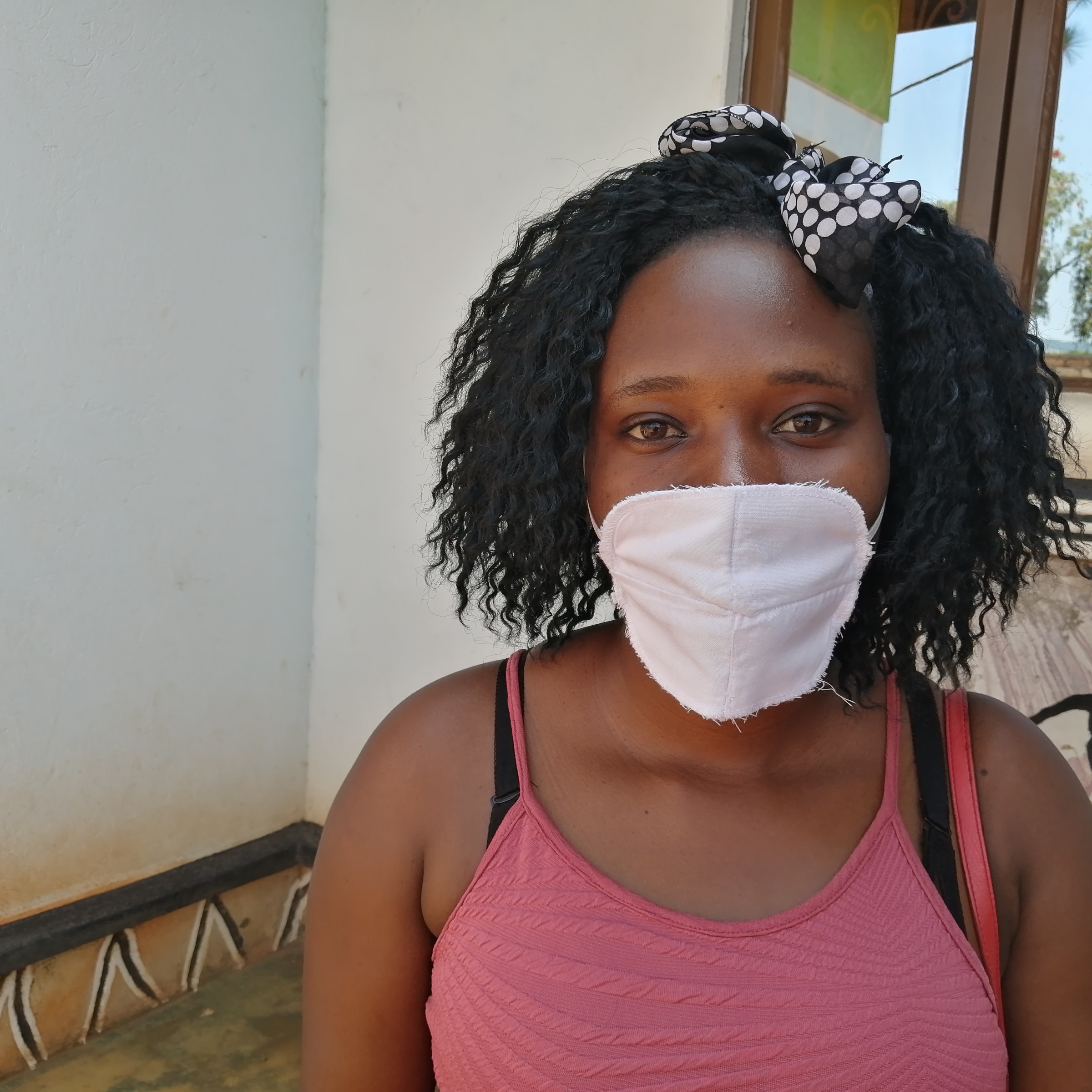
What inspires Community Development Officer Olive Kamusime? People like Kirya Darlison come immediately to Olive’s mind.
“She is a woman of reference for me that I love to use to encourage other struggling mothers,” Olive said.
Ms. Darlinson is from Kimigi Kyamatama community in Uganda. The widowed mother of seven children, who range from thirty-two to fourteen years old, is a peasant farmer who grows cassava, potatoes, maize, and bananas mainly for food. She also operates a small retail shop at the Kimigi trading center.
Before completing the new well in Kimigi, Ms. Darlison would travel more than two hours, spending about four hours round trip, in search of safe drinking water. She would use the nearby open water source for domestic purposes like cooking, washing, and other home chores. During the rainy seasons, the water would get so dirty and hard to use because of its color. Her older children live in Kampala, and her younger children are full-time students, so she has to get all the water she needs on her own.
As a single mother, Ms. Darlinson survives on the money made from the small retail shop she runs. As a result, she used to close her shop for some hours so she could search for water, losing out on some of her would-be customers. This time away would significantly harm her sales.
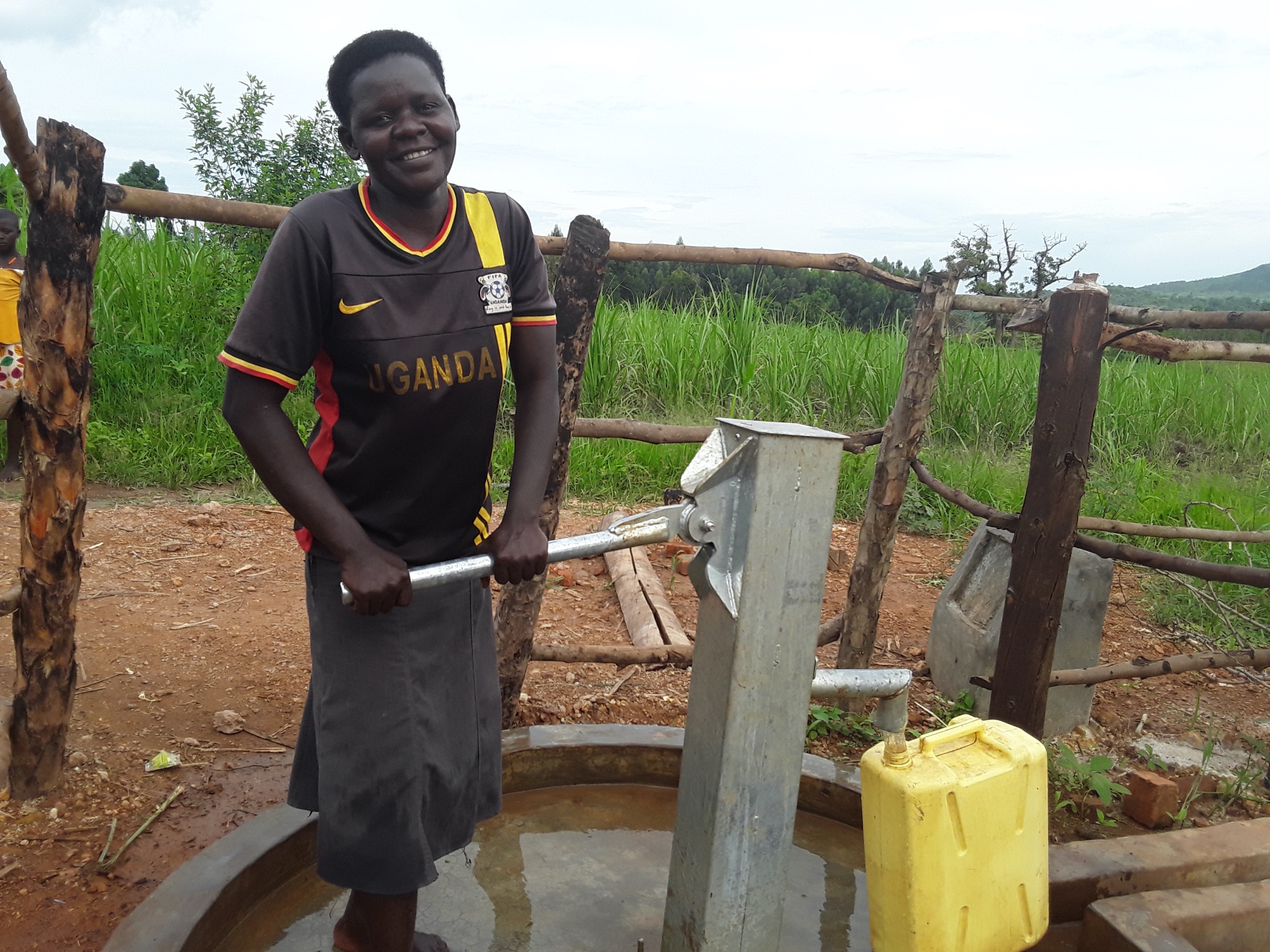
A woman pumps the well in Kimigi village.
Since the completion of the project, Ms. Darlison’s life changed. Now, she spends less than ten minutes getting water. She easily sends a neighbor’s son or daughter for ten liters of water because the water point is close. This has improved their daily lives. Today, Ms. Darlinson is expanding her business and easily paying her children’s school fees.
“Ms. Darlison is a woman who is brave and stands up boldly to train, sensitize, and share her story of income with other women in the community,” said Olive.
A lot has changed in Uganda since the start of the COVID-19 pandemic, especially Olive’s job and life outside it. We asked her to catch us up on what it takes to be a Community Development Officer and what keeps her busy and engaged when she’s not at work. The following interview has been edited for clarity and length.
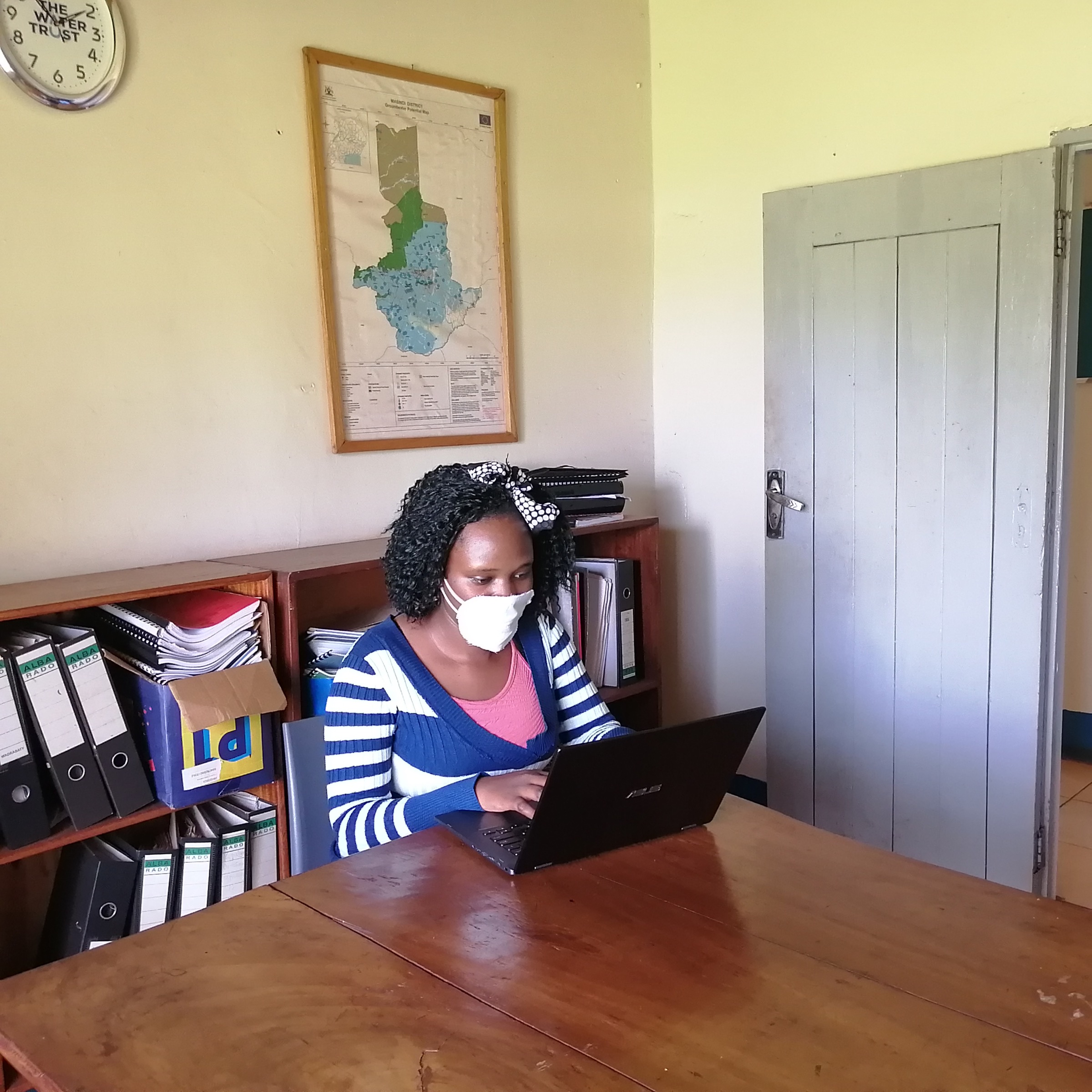
Olive working at the office.
How long have you held this position?
Three years and five months.
Where in Uganda are you from?
Kikube District, Kikonda II village.
Personal interests and hobbies:
Singing/worship and swimming. I like to sing, “I love you, Lord, for your mercy never fails.” It’s a song I don’t go a day without singing.
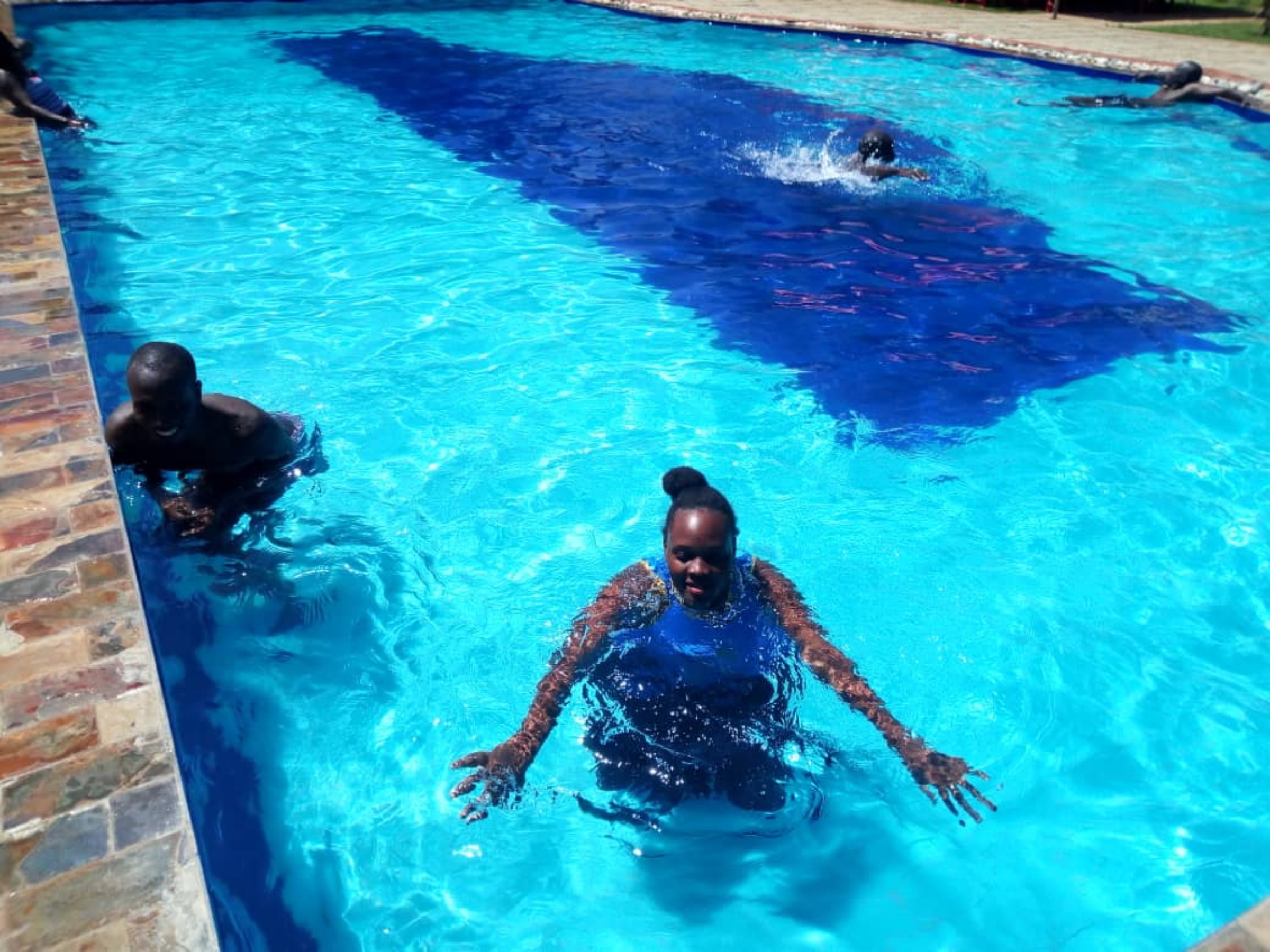
Olive at the pool
What are your long-term hopes and/or goals for your work?
I hope for organizational growth and increased visibility, and to expand our work to other districts like Hoima, Nakasongola, and the rest of Uganda’s western region. I personally see myself growing professionally to a WASH expert depending on my technical and social mentorship.
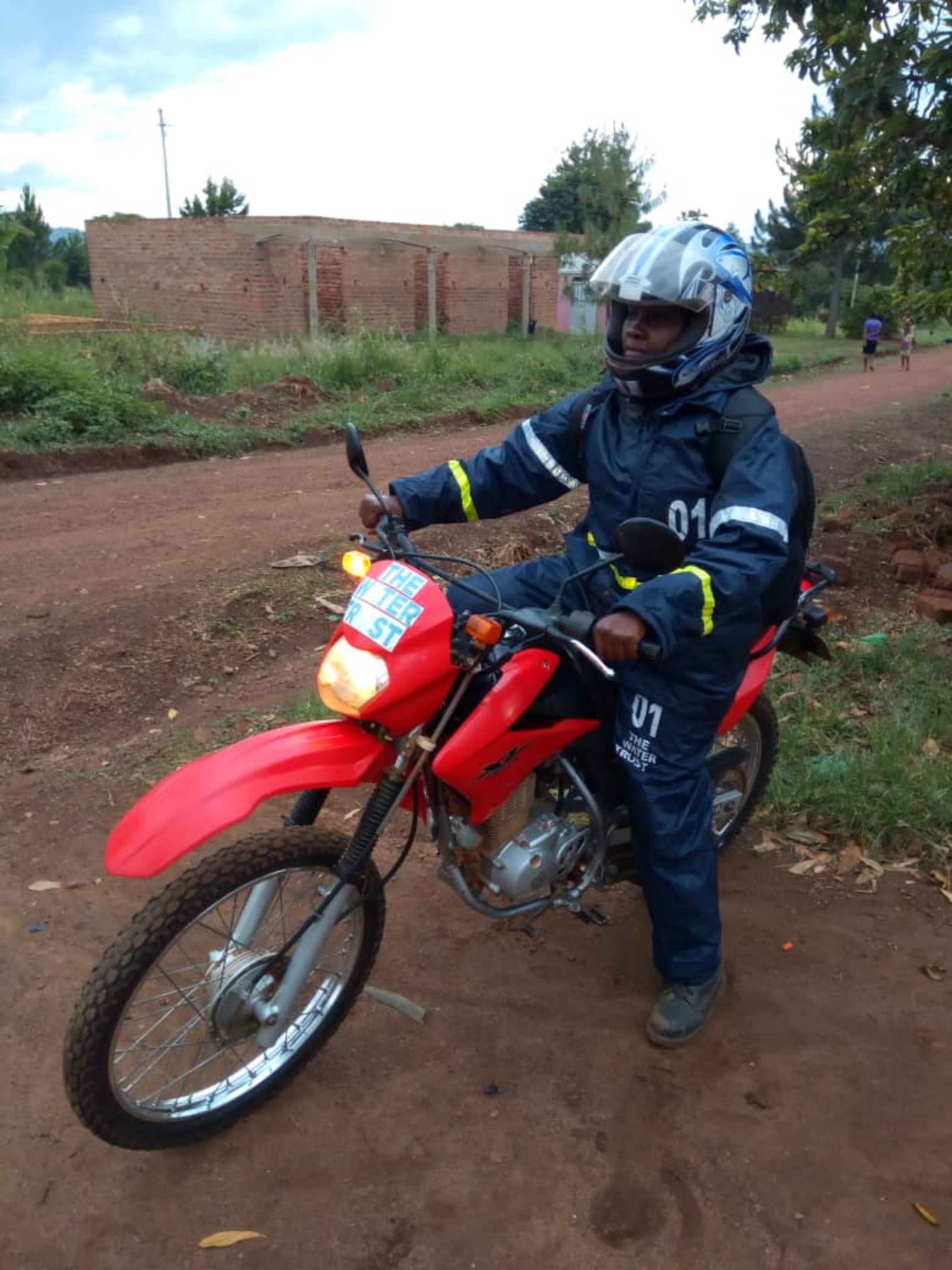
Olive on her motorbike.
Before the COVID-19 pandemic, what did an average day look like for you?
I woke up at 5:00 am, read, and said a short prayer for about twenty minutes. Then I took a shower, made my hair, and got dressed for work by 7:50 am. I closed my door and walked to the boda (motorcycle taxi) stage to pick up a bike. I arrived at the office by 8:00 am, registered in the arrival book, grabbed a cup of coffee, opened my computer to read and respond to emails, updated my tasks for the previous day/week, attended any meetings, called the people in the field to where I was going, prepared my motorbike, and got my bag ready for the field.
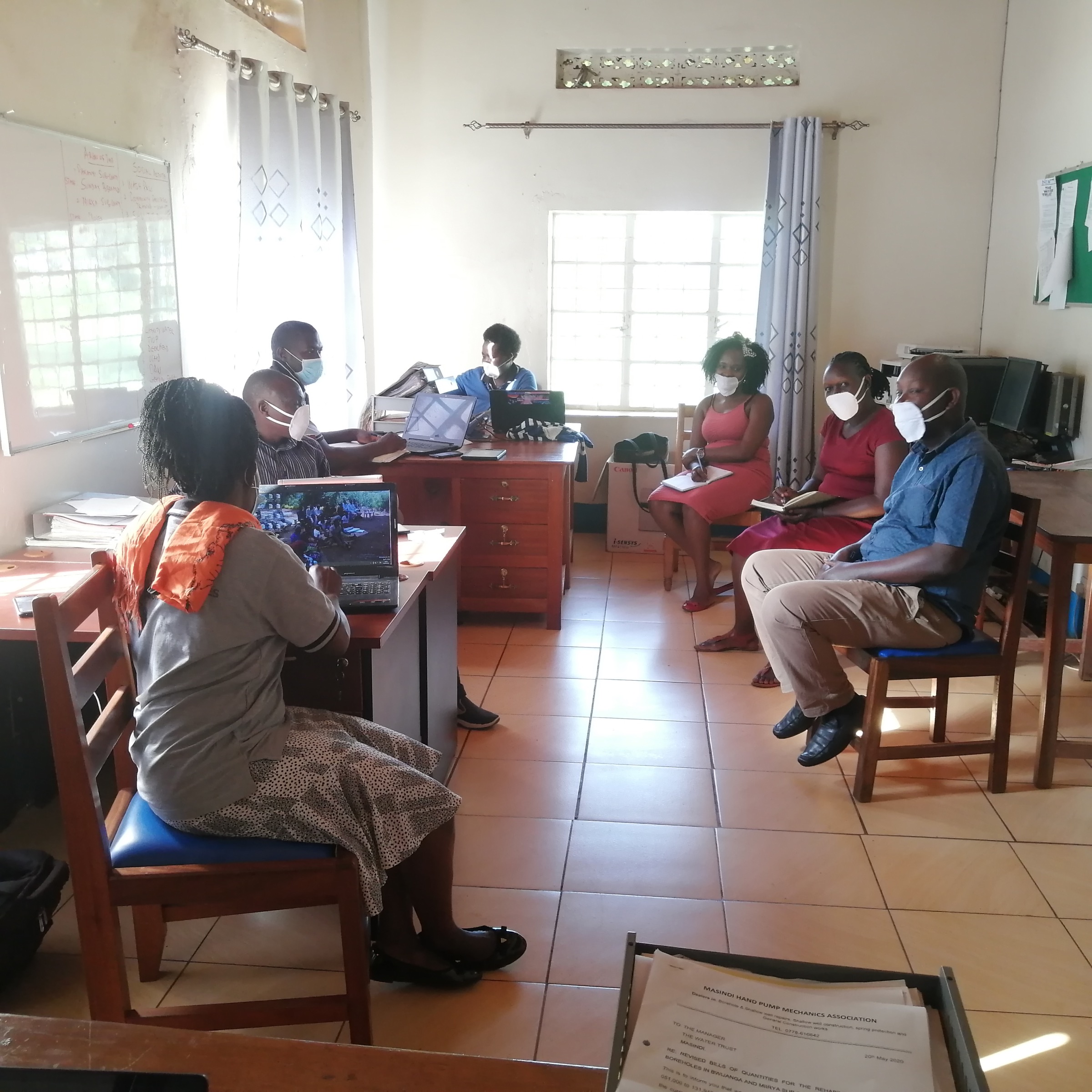
Olive attending a meeting
I left the office for the field at 10:00 am. I am a slow rider, and the roads are bad, so it took me about two hours to reach the communities. Once there, I carried out a training/monitoring/coaching up to 3:30 pm and then departed back to the office. I then took my handbag and took two minutes to walk to town to a restaurant for my meal (most times a takeaway). I took a boda home.
On reaching home, at about 6:30 pm, I took a shower and then turned on my television to watch the news as I took my meal. I often take a glass of cold water, but when I am cold, I boil a cup of tea in an electric kettle to accompany my meal. From 7:00 to 8:00 pm, I watched the news and then watched a soap/drama from 8:00 to 9:00 pm. After that, I would read until 10:30 pm, when I say my night prayers with Pastor Robert Kayanja Chanel 44 TV, and go to bed at 11:45 pm after the first sermon.
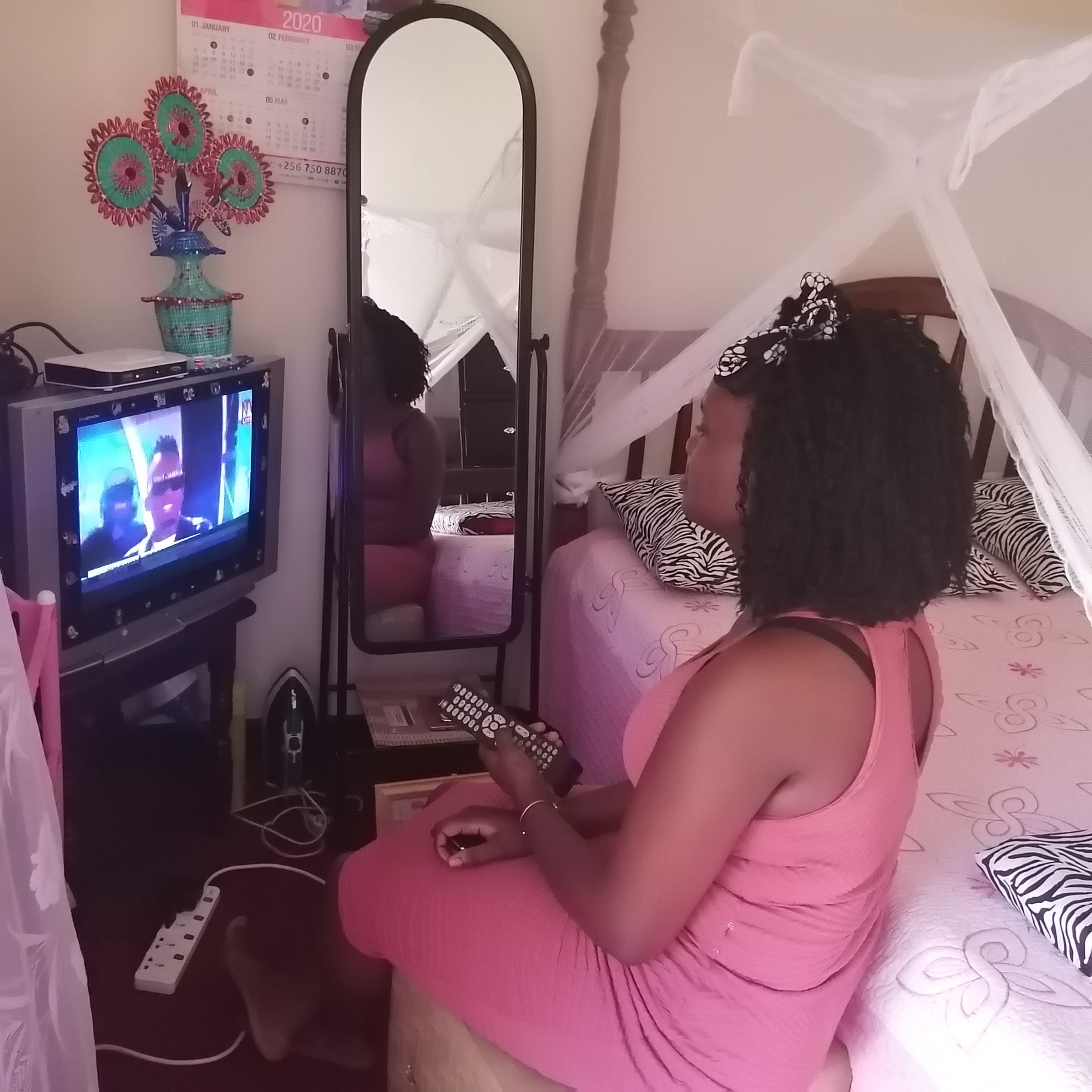
Watching TV at home in the evening.
Since the spread of COVID-19, how has your work changed, if at all? Are there activities you are no longer able to do? Are there new activities you have taken on?
I now wake up at 6:30 am because I no longer have course work to do since schools closed. I worship and say a short prayer, take a shower, make my hair, and get dressed for work by 7:50 am. I close my door, put on my mask, wash my hands, and pack my hand sanitizer in my handbag. Sometimes I walk to the office for about 30-40 minutes since there is no public transport allowed, though I drive to the office most times, and this takes me only 10-12 minutes.
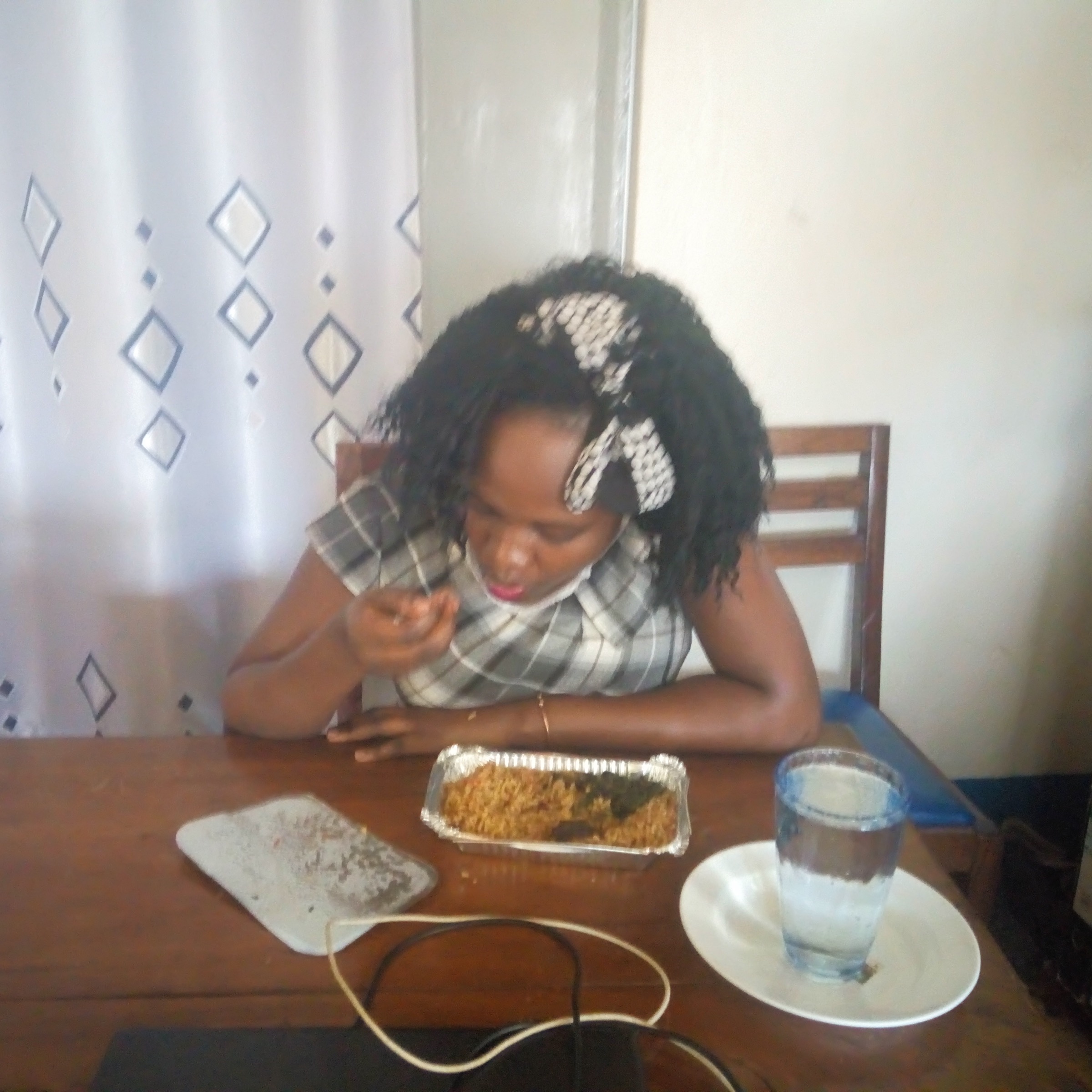
Eating lunch at the office.
I arrive at the office by 8:15 am, register, and wash my hands at the entrance, re-clean my desk, grab a cup of coffee at the office, open my computer to read and respond to emails, update on my tasks for the previous day/week, attend to any meeting, and start the remote monitoring, like the COVID-19 perception call surveys, until 1:00 pm.
When I break for lunch, unlike before COVID, when lunch hours would find me in the field, I return at 2:00 pm to the office and resume with the community calls up to 5:00 pm, synchronize my phone, and provide an update in the daily task plan document on Google Drive. I wash my hands as I walk out of the office. By 5:40 pm, I embark on my way home to not be caught up by the curfew time, which begins at 7:00 pm. Immediately after work I go home, unlike in the past, when I would sometimes go to church for evening services, or sometimes hang out with my friends. I no longer visit my friends and distant relatives, and neither do I allow friends at my place.
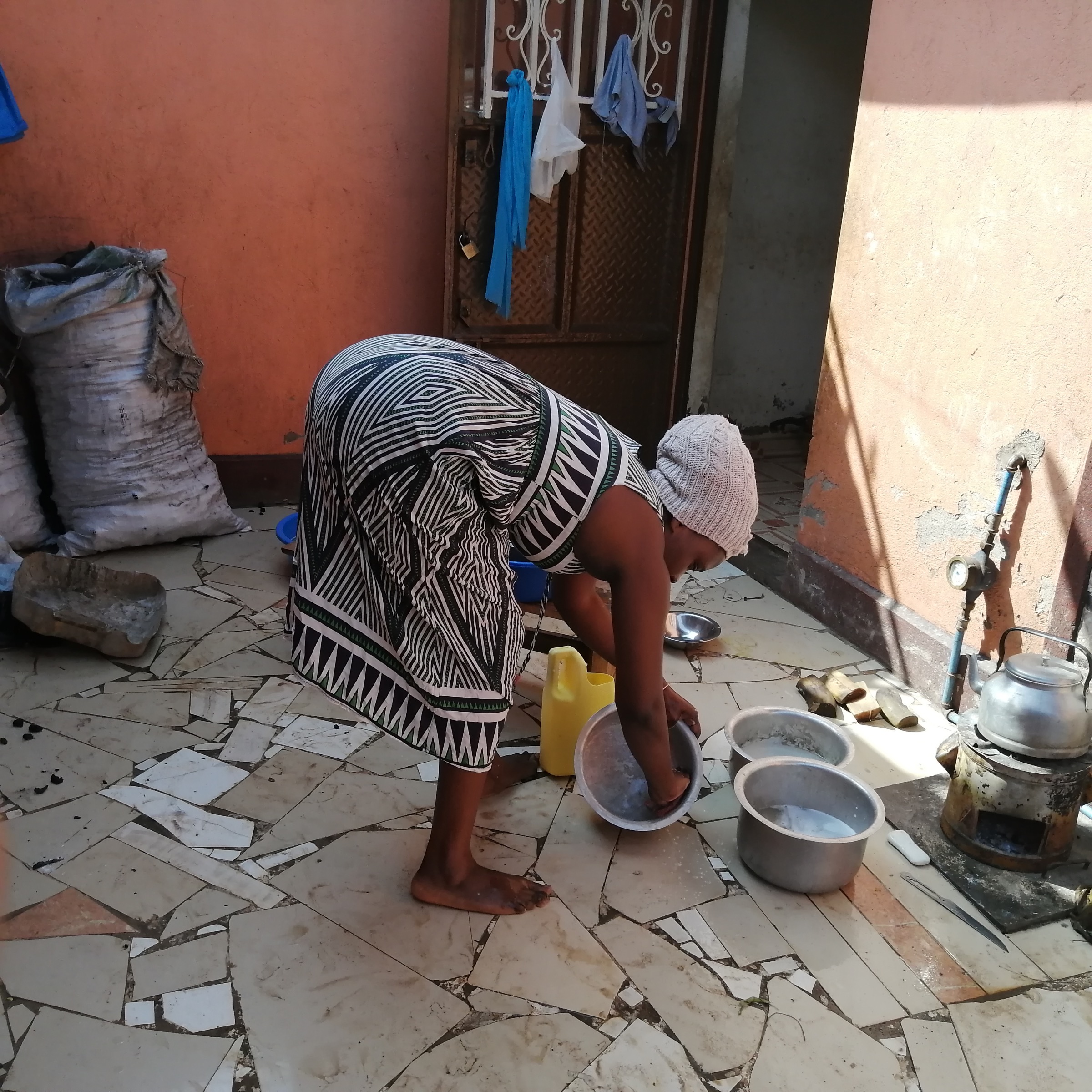
Washing dishes at home.
Tweet